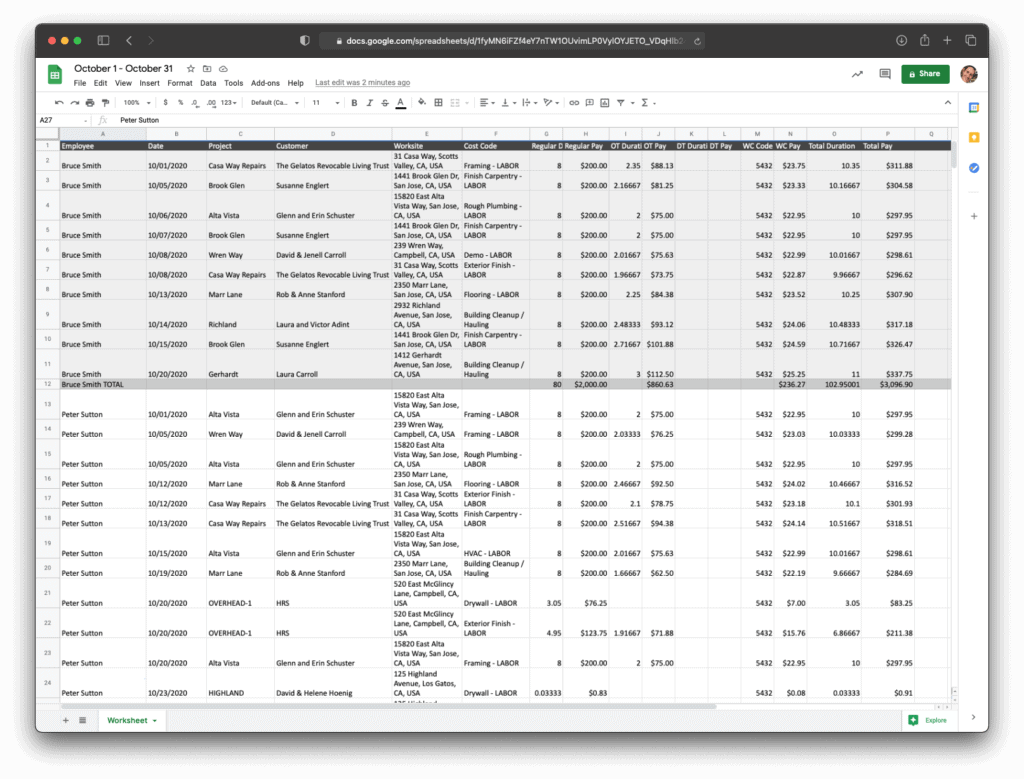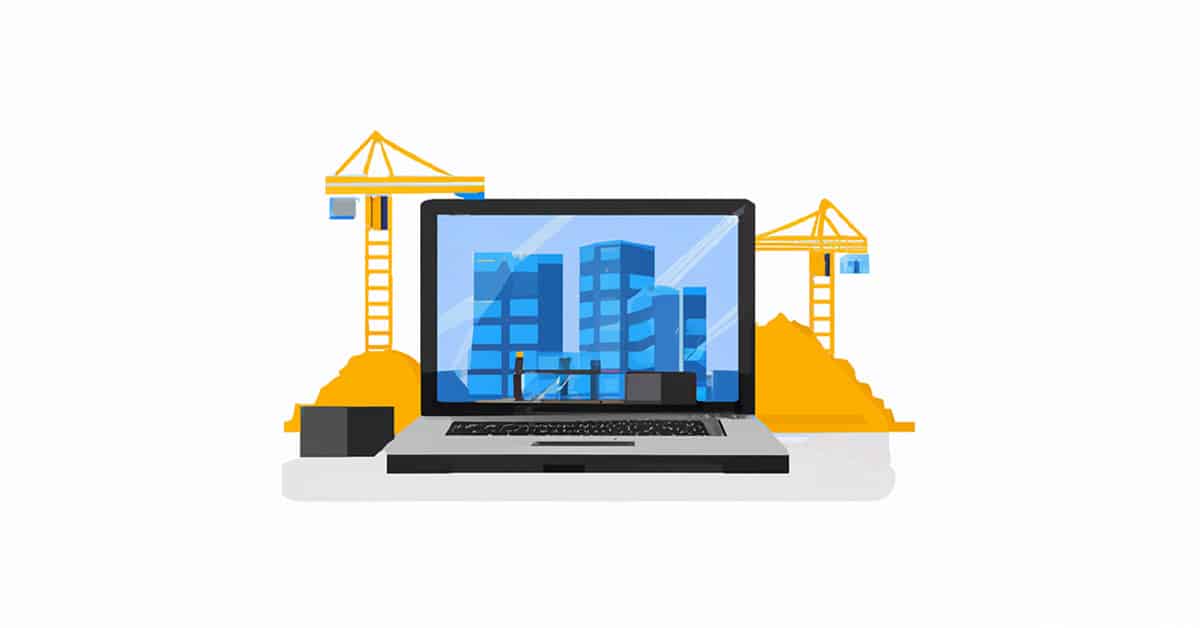Accurate Time Tracking Is So Much Easier With Workyard
Weather conditions, overtime, and the rising costs of materials—all can affect a project’s progress. But with the right construction planning, you can avoid major cost overruns, the secret is mastering construction cost reporting.
Construction cost reporting is essential to the process of managing a construction project. Without effective cost reporting, you can’t effectively estimate the cost of new jobs or accurately bill clients. You may even fail to turn a profit.
Let’s look at construction cost reporting, why it’s important, and how you can build your next construction cost reports with our all-in-one construction cost reporting guide.
What Is Cost Reporting in Construction?
Construction cost reporting is the process of tracking and documenting all costs associated with a construction project. This includes both fixed and variable costs, as well as any unexpected or unforeseen expenses that may arise. Construction cost reporting is essential for effective project management, as it allows you to keep track of your budget and make necessary adjustments along the way.
There are a variety of tools and apps available to help with construction cost reporting. These typically include features such as real-time tracking and reporting, budget management, and scheduling.
Why Are Construction Cost Reports Important?
Without construction cost reports, it’s impossible for companies to effectively manage their costs and communicate changes in budget or schedule. Accurately tracking and reporting your costs helps you stay on track throughout the project—and makes you aware of potential overruns while they can still be mitigated.

After a project is completed, construction cost reports provide valuable insights into how expenses are trending over time. They can help you understand areas where costs are increasing or decreasing, areas that need improvement, and potential areas of opportunity.
Construction Cost Reporting Step By Step
Let’s get into how you actually create a construction cost report. Construction cost reporting should be completed not when the project is over but at intervals throughout the project—to determine whether the project is still on track. Follow these steps to ensure successful and accurate reporting:
1. Gather Cost Data Regularly
To create an accurate construction cost report, it’s essential to have a complete understanding of all costs associated with the project. This includes fixed expenses, variable expenses, direct expenses, indirect expenses, and any incidentals that occur throughout the project.
Fixed costs are those that do not change, regardless of what happens on the job site. They include fees, permits, insurance, and equipment—things that should more or less stay the same. Variable costs fluctuate depending on the circumstances; this includes labor, material costs, and rentals.
Mobile job tracking apps make it much easier to capture and track labor-related expenditures and mileage throughout the project. The advantage of these apps is that they completely automate the accurate capture of time spent on each project, saving you hours of time wrestling with error-prone spreadsheets and manual data entry. They also give you a real-time view of how your costs are tracking compared to plan, so you can do something about overruns before it’s too late.
2. Implement A Reporting System That Gives You Answers Quickly
You need a cost reporting system that allows you to quickly review your costs on a regular basis to spot any areas where costs may be increasing or decreasing. You don’t want to be manually manipulating data every time you want to answer a simple question like how much have you spent on labor for a particular stage of a project.
Your options are:
- Implement a spreadsheet that allows you to paste in the raw data and then uses pivot tables and charts to summarize how you are tracking
- Implement job costing software that automatically captures the data for you and provides in-built reporting
The most important aspect here is making sure you have a system that is regularly fed the latest data and it takes you minutes to get the critical insights you need on how your costs are tracking.
3. Build A Cadence For Regular Analysis Of Costs
It’s easy to get caught up in solving project issues on the ground and lose track of whether your costs are tracking to plan. That’s why it’s important to build a regular cadence for analyzing project costs.
Set up a recurring meeting with the key people on the project you feel need to understand how costs are tracking. Compare actual costs to what you budgeted, where there are discrepancies discuss what can be done to counter the overruns.
A regular cost reporting cadence also emphasizes to your team how important cost control is at your organization.
4. Review Your Construction Cost Reports After the Job
Once a project is complete, take the time to carefully review your cost reports and ask the following questions:
- Which components went to plan and why?
- Where did the overruns happen and why?
- Where did we overestimate?
These insights form the basis of a mechanism of continuous improvement on your bids. If you understand where the overruns happened and why you can factor that in on your next bid. If you understand where you overestimated, that also helps you understand where there is some potential flexibility on your next bid if you are under competitive pressure.
Did you find this post helpful? Please rate it!







